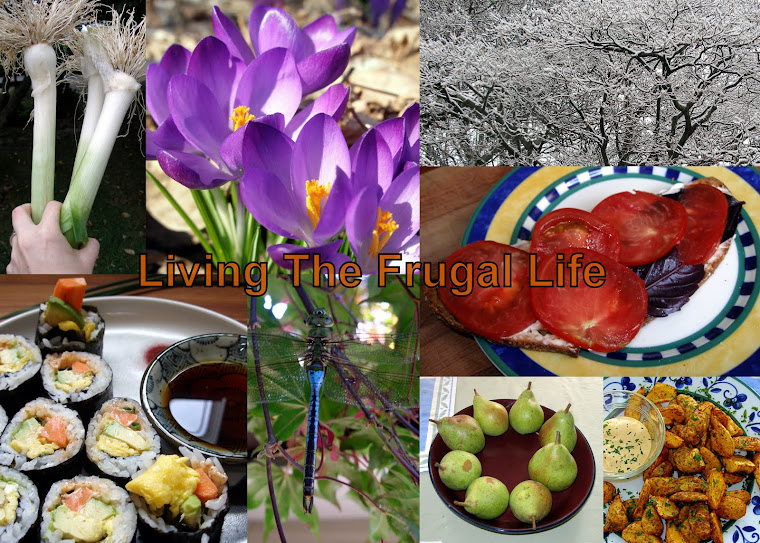Frugality is easy for me to practice in the kitchen because I am an experienced cook. With professional training as a chef, this isn't much of a boast. But I got to thinking about how frugality works in a kitchen the other day.
I'd picked up some ends of smoked ham at the butcher, planning to make either ham salad or deviled ham. I'd never made either of these before and didn't have any specific recipe in mind. When I got home, I surfed for a few recipes, got a rough idea of what the standard ingredients were and then headed into my kitchen. Dried spices came out of the freezer, condiment jars and half a red onion out of the fridge, and a few other things out of my pantry.
As I mixed the chopped ham with a variety of ingredients, I once again felt that familiar pleasure of creation in cooking intuitively. I marveled at what I was able to create, just from what I had on hand in my home, plus one ingredient that I picked up very cheaply on impulse. What struck me is that my pantry allowed me this creative freedom, and that my pantry is a reflection of my approach to cooking. I suspect that the home pantry, as much as the inclination and the skill of the cook, is what allows delicious meals to be prepared in any given home. Ingredients are as essential as skill when it comes to cooking. Even a skilled chef can only work with what is on hand.
So I wanted to take this opportunity to once again sing the praises of a well stocked pantry. Having fresh herbs on hand, as well as a large selection of shelf-stable items will allow you to be frugal with your food expenses. When the allure of your own home cooked meals outshines the convenience of a mediocre meal at a restaurant, it's very easy to economize. So practice good pantry management. If there's an ingredient that you really enjoy using, make sure you always have it on hand. You will find myriad uses for your favorite ingredients if they stare you in the face whenever you open the fridge.
My favorites include Italian parsley, heavy cream, and fresh ginger. Stored properly, these items will keep for weeks. And though they might not all go together, any one of them would make an excellent addition to soups, noodle dishes, meats, sauces, even baked items. Plus, they all have the ability to jazz up leftovers. There's never any risk of these items going to waste in my home.
When considering buying a perishable item, ask yourself if there you can think of a handful of ways of using it up. What's your contingency plan if it starts to spoil? Spoilage is less of an issue with shelf-stable items, but ask yourself how you're going to use something before you buy it anyway. If it's something so specific that you only know of one way to use it, consider carefully. Will you really use this item up? If not, think of something else to make for dinner.
Framed
4 years ago





No comments:
Post a Comment